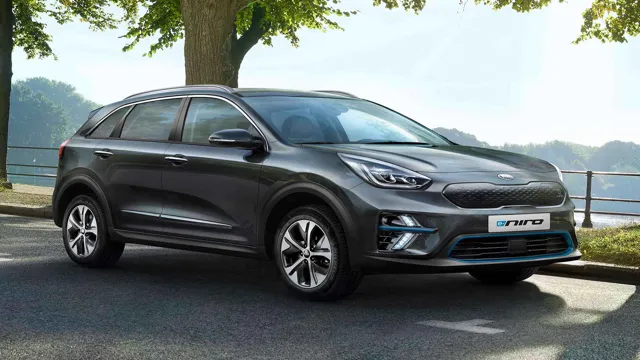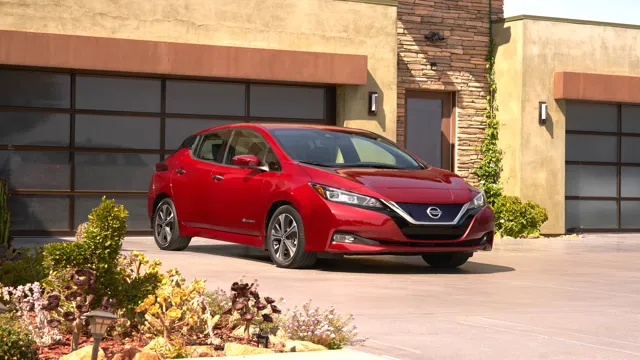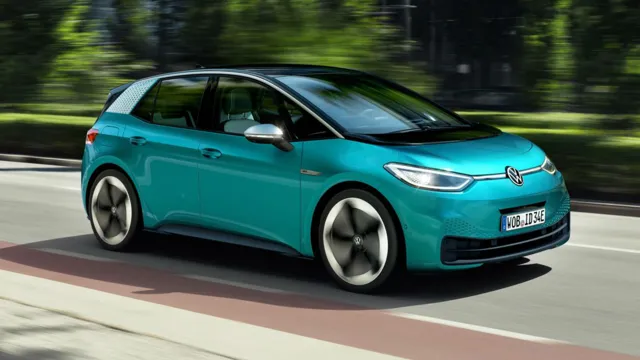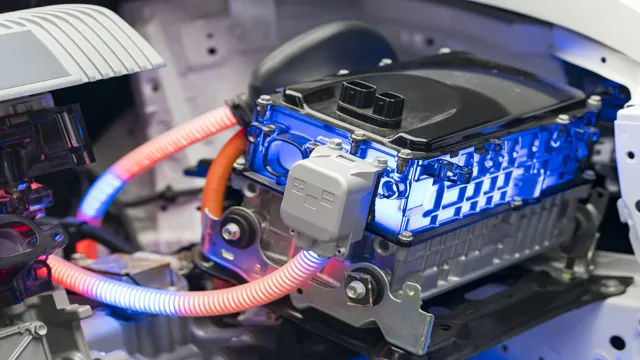Uncovering the Ins and Outs of Hybrid Generators: A Guide to Sustainable Power Solutions
Hybrid generators have been gaining popularity in recent years as a reliable source of power. But what exactly are they and how do they work? In this blog, we will take a closer look at understanding hybrid generators and explore the benefits of using them for different purposes. Whether you are in need of a backup power source for emergencies or looking for an efficient way to power your home or business, hybrid generators can offer a convenient and cost-effective solution.
So, let’s dive into the world of hybrid generators and discover what makes them such a valuable asset in the world of power generation.
What is a Hybrid Generator?
A hybrid generator is a renewable energy system that combines two or more sources of power to generate electricity. Typically, it consists of a traditional generator that runs on fossil fuels, such as gasoline or diesel, and a secondary power source such as solar panels or wind turbines. The hybrid system is designed to harness the strengths of each power source while minimizing their weaknesses.
For example, during sunny or windy days, the solar panels and wind turbines can generate a significant amount of electricity, reducing the reliance on the generator. However, during periods of low sunlight or wind, the generator can take over and ensure a steady supply of power. Hybrid generators can be an excellent option for off-grid homes or businesses that require consistent, reliable power without relying solely on non-renewable energy sources.
They are also a cost-efficient way to reduce your carbon footprint and contribute to a sustainable future.
Definition and Components
A hybrid generator is a type of power generator that uses a combination of two or more sources of energy to produce electricity. It is an alternative solution to traditional generators, which usually rely solely on fossil fuels. Hybrid generators use a combination of renewable energy sources such as solar, wind, or hydro, as well as traditional sources like diesel or gasoline to generate power.
They typically have multiple components, including an energy storage system, an inverter, a controller, and a backup generator. The energy storage system stores excess energy produced by the generator, while the inverter converts the DC power produced by the renewable source into AC power that can be used in homes and businesses. The controller manages the distribution of power from the various sources, while the backup generator takes over in case of power shortages.
Overall, hybrid generators are an efficient and eco-friendly alternative to traditional generators, providing a reliable source of power while reducing carbon emissions and energy costs.
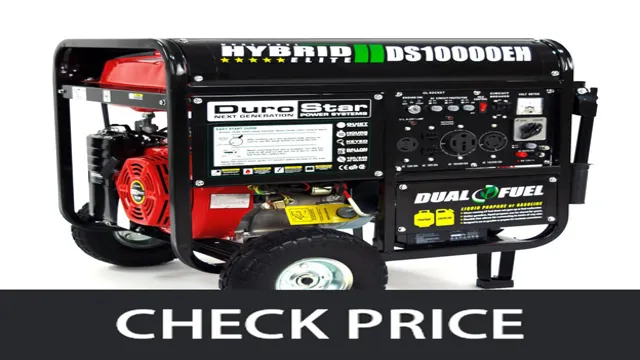
Types of Hybrid Generators
A hybrid generator is a power source that combines two or more energy-producing technologies to create electricity. Typically, hybrid generators use renewable energy sources such as solar, wind and hydro power in combination with traditional fuel sources like diesel or gasoline engines. By harnessing both types of energy, hybrid generators are more efficient and cost-effective than their traditional counterparts, while also reducing their environmental impact.
There are various types of hybrid generators available, such as parallel hybrids or series hybrids, each with their unique configurations and benefits. Parallel hybrids use both energy sources simultaneously and are typically better suited for smaller capacities, while series hybrids use one energy source after the other and are ideal for larger capacities. No matter which type you choose, a hybrid generator provides a sustainable and reliable source of power that will reduce your carbon footprint and save you money in the long run.
How does a Hybrid Generator Work?
If you’re wondering what is a hybrid generator, it is a type of generator that combines two different power sources to produce electricity. The hybrid generator typically uses a fuel-powered generator as a primary source of power with solar panels or wind turbines as secondary sources. When the primary power source is not sufficient to meet the energy demand, the secondary source kicks in to supplement the energy production.
This dual-mode operation ensures that the generator runs at optimal efficiency and drastically reduces fuel consumption. Additionally, the hybrid generator system can be programmed to use either source of power automatically based on availability and demand. A hybrid generator reduces fuel consumption, noise pollution, and carbon emissions.
It’s a sustainable and cost-effective way of providing power in remote areas or during power outages.
Mechanism of Power Generation
A hybrid generator is an excellent source of power, and it works in a unique way. The primary mechanism of a hybrid generator is to combine two energy sources, usually gasoline and electricity, to produce power. It works by using an electric motor to spin the generator that produces electricity, and the gasoline engine supports the electric motor.
The hybrid generator is fuel efficient because the gasoline engine only runs when the battery is low on charge. The electric motor does the heavy lifting most of the time, decreasing fuel consumption and pollution. The energy production is regulated by an internal computer system that determines when to switch between gasoline and electric power.
A hybrid generator is an excellent alternative to traditional generators because it is greener and quieter. It is also an ideal solution for remote areas without a reliable power grid. Overall, hybrid generators are an excellent solution for anyone looking to reduce their carbon footprint while enjoying a reliable source of power.
Advantages and Disadvantages
A hybrid generator is a combination of a generator and renewable energy sources like wind or solar power. When the renewable source is available, it charges a battery bank, which then powers the generator. This combination ensures a steady and reliable power supply regardless of the weather.
One major advantage of a hybrid generator is that it reduces carbon emissions since renewable energy sources are used. Additionally, it can provide electricity in remote areas where grid power is not available. However, the initial cost of setting up a hybrid generator is relatively high.
It also requires regular maintenance to keep it in good working condition. Furthermore, it may not be as efficient as a standalone generator in generating power since it relies on renewable energy sources that are not always available. Regardless of these disadvantages, a hybrid generator is a viable solution for those who need a reliable and sustainable source of power.
Choosing the Right Hybrid Generator
If you’re in the market for a generator, you may be wondering what a hybrid generator is. Simply put, a hybrid generator uses multiple sources to produce power, typically a combination of fuel and renewable energy sources. When choosing the right hybrid generator, you’ll want to consider factors such as the size of the generator, the amount of power it produces, and the fuel type.
You should also consider the environment where you’ll be using the generator and any noise restrictions in place. A hybrid generator can be a great investment if you’re looking for a reliable and sustainable source of power backup. By choosing the right one, you can rest assured that you’ll never be without power when you need it.
Factors to Consider
Choosing the right hybrid generator can be a daunting task, but there are several factors to consider to make the right decision. Firstly, it’s essential to determine the power output required to meet your needs. The size and type of generator will depend on the amount of power needed and the appliances you plan to run.
Secondly, the fuel source is another vital aspect to consider when choosing the right hybrid generator. A generator that runs on different fuels such as propane, gas, or diesel, offers flexibility and can save you money in the long run. Additionally, portability is also an essential factor to consider, especially if you plan to use the generator for outdoor activities or in remote locations.
A portable generator that is easy to move and store can save on installation costs and improve the overall convenience of using a generator. Ultimately, it’s essential to find the right balance between cost, functionality and efficiency when choosing the right hybrid generator for your needs.
Examples of Applications
When choosing the right hybrid generator for your specific needs, there are a few key factors to consider. Firstly, you need to assess the overall power requirements of the application – whether it’s an RV, a cabin, or a construction site. This will enable you to determine the size and type of hybrid generator that will accommodate your needs, as well as the fuel source that will be most cost-effective and efficient.
Some hybrid generators run on diesel, while others rely on gas or propane. Other important factors to consider include noise output, portability, and the overall environmental impact of the generator. For example, solar-powered hybrid generators are an excellent choice for those looking to reduce their carbon footprint.
Ultimately, choosing the right hybrid generator comes down to a careful assessment of your individual needs and goals, as well as a thorough understanding of the various options available on the market.
Conclusion
In conclusion, a hybrid generator is like the lovechild of two exceptionally talented parents. It combines the clean energy benefits of renewable sources and the reliability of traditional fossil fuels to produce power in an efficient and sustainable manner. It’s the ultimate fusion cuisine, blending the best of both worlds to create a technology that is truly versatile and adaptable.
So, whether you’re powering a remote village or augmenting your home’s energy supply, a hybrid generator is the perfect match for all your electricity needs!”
FAQs
What is a hybrid generator?
A hybrid generator is a power generator that uses more than one source of energy, including both traditional fossil fuels and renewable energy sources like solar or wind power.
How does a hybrid generator work?
The hybrid generator uses a combination of sources, including traditional generators that run on gasoline, diesel, or propane, as well as renewable energy sources like solar or wind power.
What are the advantages of a hybrid generator?
Hybrid generators can be more reliable and energy-efficient than traditional generators, providing a more sustainable and cost-effective source of energy.
Can a hybrid generator be used in residential homes?
Yes, hybrid generators can be used in residential homes, providing a reliable source of backup power in the event of a power outage or grid failure. However, they can be more expensive than traditional generators and may require specialized installation or maintenance.

